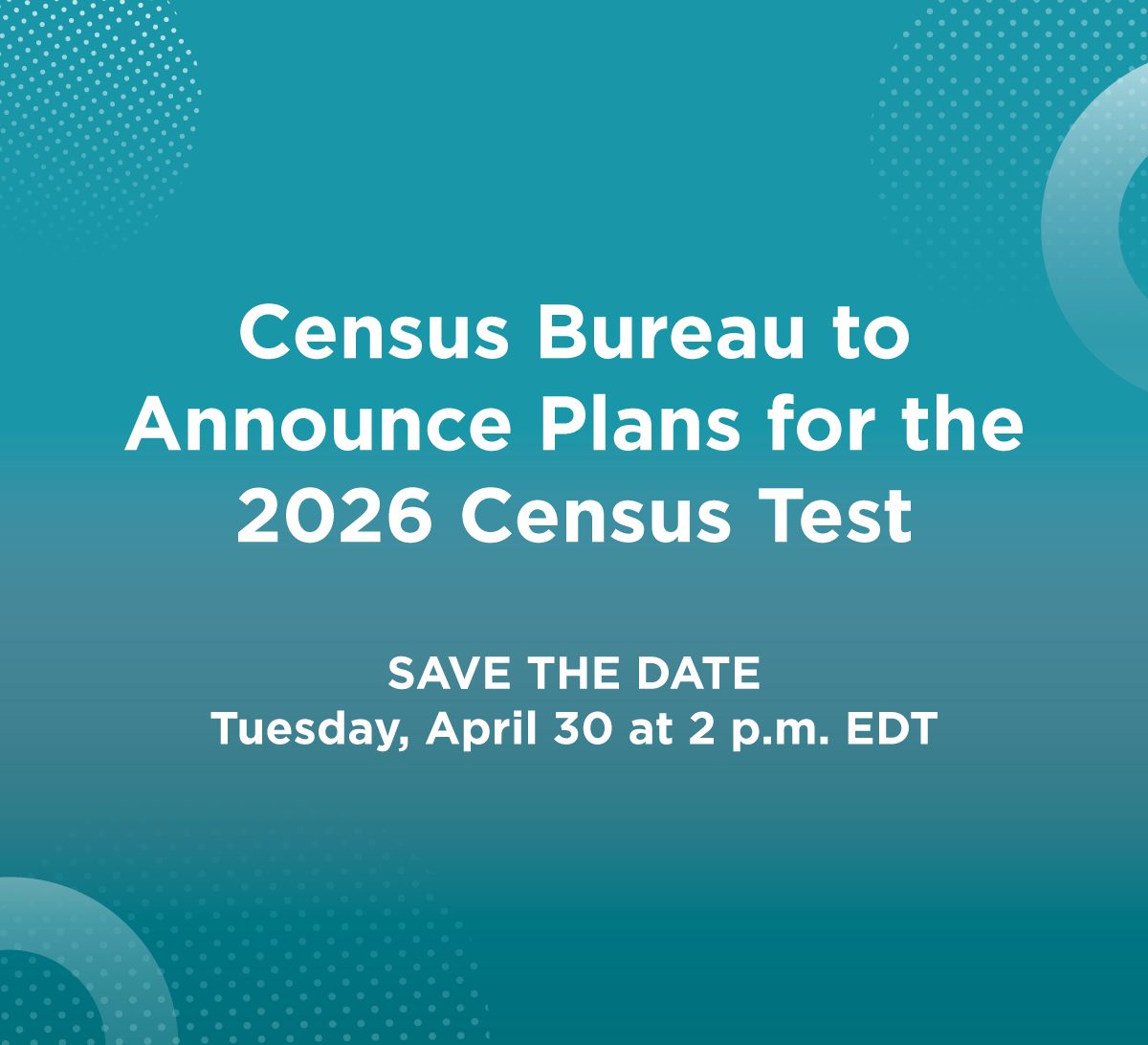Meeting Our Future: Improving Race/Ethnicity Data With Updated Federal Standards
On March 28, the U.S. Office of Management and Budget (OMB) published the results of its review of Statistical Policy Directive No. 15 (SPD 15) and issued updated standards for collecting and reporting race and ethnicity data across federal agencies, including the U.S. Census Bureau. These standards were last revised over a quarter century ago. Given the evolution of our nation over the past two decades, this announcement is well received.
Professionally, these updated standards will improve data on race/ethnicity to better reflect the growing, beautiful diversity of our nation and its people. Personally, I am thankful that I and more Americans than ever will be able to self-identify using a single question that respectfully presents race/ethnicity categories co-equally. And checking all that apply allows respondents to report our rich identities in full. Yes, I’m looking forward to answering the new combined race/ethnicity question in the 2030 Census, the American Community Survey and other social and demographic surveys conducted by the Census Bureau.
The publication of these updated standards powerfully impacts our collective understanding of the future racial/ethnic demographics of our nation, providing us with a more nuanced and dynamic understanding of our population’s complex and rich diversity of communities and identities. I encourage you to review the updated standards – and think about how you can portray your whole self when answering future race/ethnicity questions in our surveys and censuses.
The Census Bureau has now begun reviewing the updated SPD 15. As we develop plans to implement it in our censuses and surveys, we will keep you – the public – informed with regular updates. We look forward to engaging with communities and organizations around the nation to discuss how we will be collecting and tabulating future race/ethnicity data to ensure the resulting statistics yield meaningful and useful information for the public, researchers, programs and policies across many spectrums.
Furthermore, I am delighted to see that OMB has instituted a review of SPD 15 on a regular cadence. While the technical team did an incredible amount of work, there were still some topics that the working group was not able to fully address and that require further investigation. Among areas identified for future research: exploring what processes maximize comparability of data collected across the federal government and how to ensure accurate data collection for those who identify as Afro-Latino.
As part of our due diligence, we and, more generally, the federal government will continue to improve race/ethnicity statistics through research and external engagement. The concepts of race and ethnicity have continuously evolved throughout our nation’s history. As such, they should be reviewed and updated periodically to provide relevant data and serve policy needs. The Census Bureau will continue to support these important conversations as we learn more about how the revisions help individuals more accurately self-identify.
We deeply value, appreciate and commend Karin Orvis, chief statistician of the United States, and her team at OMB for their incredible effort. Their leadership in bringing together researchers and leaders from across the federal government led to the creation of a highly effective and productive Interagency Technical Working Group for Race and Ethnicity Standards. The working group undertook a monumental lift, using robust stakeholder engagement and past research to develop a recommendation. I am grateful that so many individuals and communities met with the working group and OMB to share their perspectives, culminating in recommendations for OMB to develop an updated federal standard for race/ethnicity data.
I also offer kudos and extend many thanks to members of our Census Bureau team, especially Karen Battle, Nicholas Jones, Roberto Ramirez, Rachel Marks, and Merarys Rios-Vargas, who have championed this effort for the past 15 years. Their leadership and collegial partnership with researchers and leaders in our fellow federal agencies have been both impactful and inspirational. As a researcher, I admire the meticulous, thoughtful and methodical research and engagement they have led throughout this long journey to improve race/ethnicity statistics for all communities.
During my 2021 Senate confirmation hearing, I pledged that I would support combining the separate race and Hispanic origin questions into one on census forms, and I wholeheartedly do so. I commend the scientific integrity and collaboration with our fellow federal statistical agencies and federal departments throughout this process. This was a government-of-the-whole effort. We sought to improve federal race/ethnicity statistics and ensure that the updated standards better reflected the contemporaneous racial and ethnic diversity of the U.S. population.
I look forward to helping the Census Bureau and our fellow statistical agencies meet the challenges and opportunities of implementing the updated race/ethnicity standards to improve and produce race/ethnicity statistics for our country.
You can read more about what these revised standards mean for the Census Bureau here.






